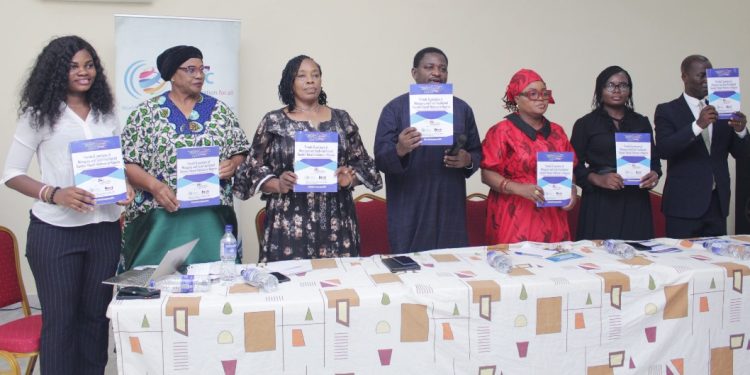A new report by Journalists for Christ International Outreach (JfC) has highlighted the high prevalence of misogyny and tech-facilitated gender-based violence in Nigeria.
The report titled ‘Trends & Contexts of Misogyny and Tech-Facilitated Gender-Based Violence (TFGBV) in Nigeria’, which was publicly presented in Lagos, is part of a series of activities for a one-year pilot project entitled ‘countering misogyny and online gender-based violence through monitoring, digital counter-narratives and advocacy actions’.
The project is supported by the World Association for Christian Communication (WACC) and Bread for The World – German Protestant Agency for Diaconia.
Speaking on the prevalence of TFGBV in Nigeria as documented in the report, Blessing Oladunjoye, Project Officer, Journalists for Christ, WACC #60, who presented the first two sections of the report said, “The interplay of sexist and misogynistic statements online has also been found to be part of the influencing factors that promote repressive acts against girls/women online.”
Oladunjoye, while speaking about the key findings of the report, noted that the report is to unveil the manifestations and the context of misogyny and TFGBV through social media monitoring (of digital platforms) and survey research (in the form of discourse sessions and FGDs).
She added that “the findings were alarming and it means there is a need to urgently address TFGBV.”
Oladunjoye further shared some parts of the research findings while revealing that the “majority of the perpetrators are skit makers, social media influencers and they often target women in leadership positions, celebrities and these have ripple effects on how their targets would continue to interact online and offline.”
Also presenting the other sections of the report, Mrs Ugonma Cokey, the Vice President of JFC, and Mrs Funmi Falobi, the Gender focal person for JFC shared the urgent need to tackle misogyny, which continues to manifest both online and offline, through deliberate societal and policy interventions.
Earlier in his goodwill message, Mr Femi Adesina, Special Adviser, Media and Publicity to the former president of the Federal Republic of Nigeria, Muhammadu Buhari, and a Board member of JFC shared his excitement about the report as it is spotlighting another phase of gender-based violence which is often overlooked.
Mr Adesina said, “I am intrigued about this report, it is another phase of gender-based violence where men just decide to hate women and exhibit this hatred online.”
He appealed for a wide circulation of the report “so that those who are guilty will know that what they are doing is anti-social and ungodly.”
Mr Gbenga Adefaye, the Provost of the Nigerian Institute of Journalism, who applauded JFC for leading the project and conducting the research shared that there are unconscious misogynists and it is important that the report has shared different categories of misogyny and cases of TGBV.
Mr Adefaye opined that “based on this report, let’s reflect whether we have been misogynist, learn from the cases and stories shared in the report and let’s improve our society by it.”
Mr Lekan Otufodunrin, the founding president of JFC, welcomed participants to the report launch and shared that the project is one of JFC’s interventions as it executes journalism-driven intervention projects.
Mr Otufodunrin noted that, as a media-driven organisation, JFC undertakes special projects aimed at advancing the role of journalists and media in the development of society.
Other speakers at the launch were; Ms Betty Abah, the Executive Director of CEE-HOPE Nigeria; Mrs Oruoma Odum, Senior Lecturer at NIJ; Pastor Evans Emmanuel; Mr Sanmi Falobi, Project Advisor, JFC WACC #60.

